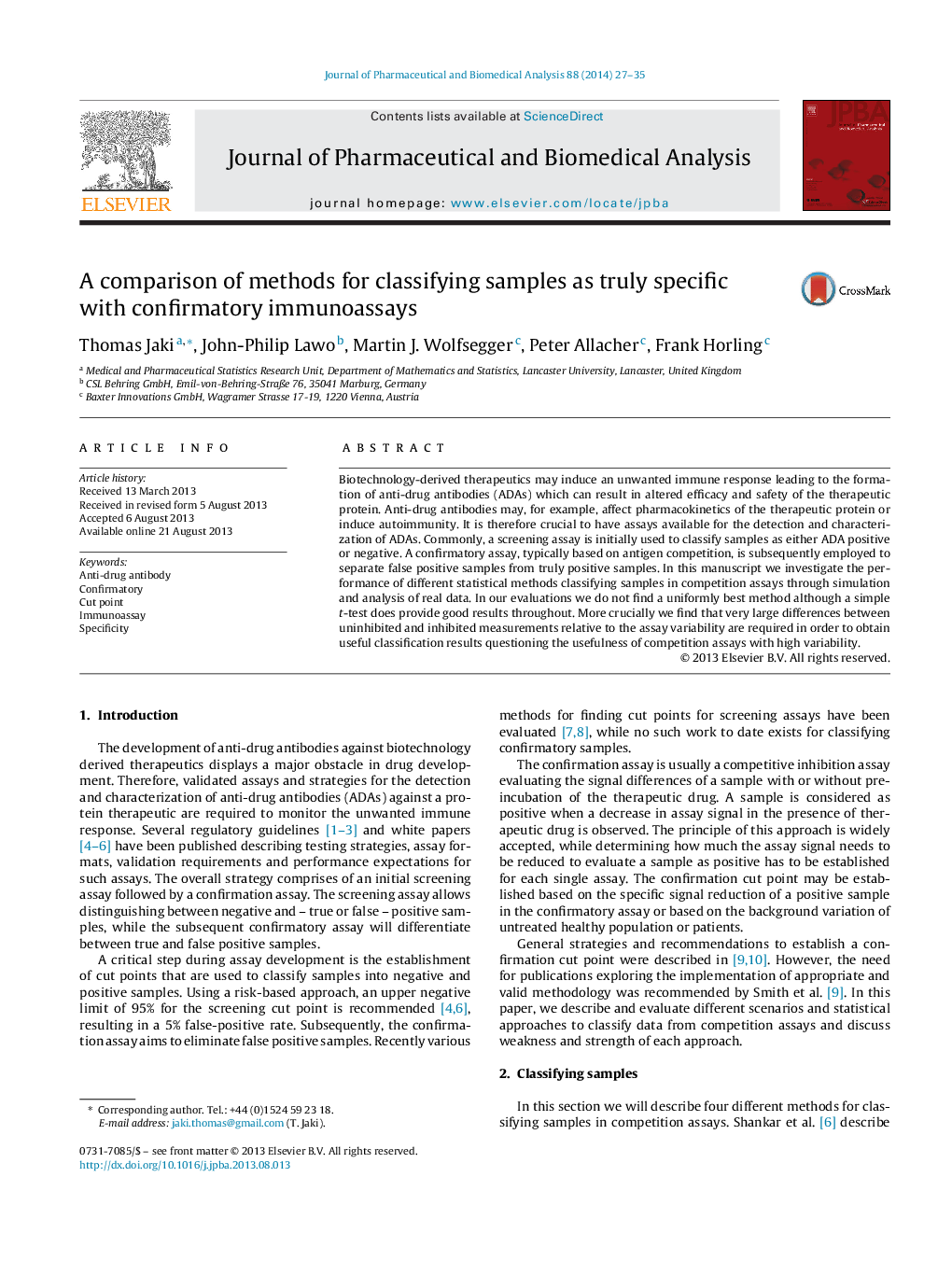| Article ID | Journal | Published Year | Pages | File Type |
|---|---|---|---|---|
| 7631415 | Journal of Pharmaceutical and Biomedical Analysis | 2014 | 9 Pages |
Abstract
Biotechnology-derived therapeutics may induce an unwanted immune response leading to the formation of anti-drug antibodies (ADAs) which can result in altered efficacy and safety of the therapeutic protein. Anti-drug antibodies may, for example, affect pharmacokinetics of the therapeutic protein or induce autoimmunity. It is therefore crucial to have assays available for the detection and characterization of ADAs. Commonly, a screening assay is initially used to classify samples as either ADA positive or negative. A confirmatory assay, typically based on antigen competition, is subsequently employed to separate false positive samples from truly positive samples. In this manuscript we investigate the performance of different statistical methods classifying samples in competition assays through simulation and analysis of real data. In our evaluations we do not find a uniformly best method although a simple t-test does provide good results throughout. More crucially we find that very large differences between uninhibited and inhibited measurements relative to the assay variability are required in order to obtain useful classification results questioning the usefulness of competition assays with high variability.
Related Topics
Physical Sciences and Engineering
Chemistry
Analytical Chemistry
Authors
Thomas Jaki, John-Philip Lawo, Martin J. Wolfsegger, Peter Allacher, Frank Horling,
